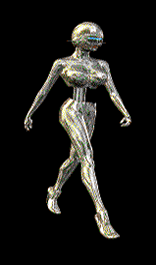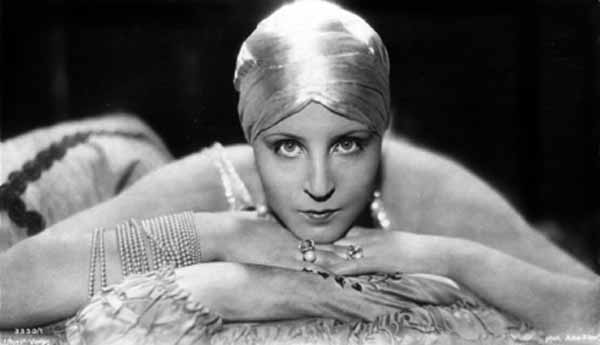
Depictions of Gynoids, Fembots, and Female Cyborgs in SF
Sources Consulted
Metropolis (1927) Fritz Lang
|
|---|
Plot: “Metropolis is a gigantic city of the future, filled with enormous skyscrapers. Workers are housed below ground, along with factories and machinery. There they live a hellish existence as slaves subservient to the needs of mechanized production. Above ground in the Upper City, are the vast offices of industrialist Joh Fredersen, master of Metropolis, who dictates his orders to squads of secretaries; complementing the office building is an Edenic Garden, where the master’s sons frolic. Into this garden, which is protected by an imposing gateway ,, wanders Maria, the daughter of a worker, surrounded by a group of wretched children. She stares long and hard at Freder Fredersen, the employer’s son, who stands transfixed, as though hypnotized. ‘These are your brothers,’ she says, pointing to the children. She is then driven out of the garden, but her visit has revealed to the son the horrible conditions in which workers live. As though walking in his sleep, Freder descends into the machine room. We see a tableau of workers on the job. An explosion takes place, killing some and injuring others. Freder then goes to see his father, who curtly informs him that class division is inevitable and that the worker must toil for his daily bread. The worker’s place is ‘down below’… Freder returns to the machine room and assumes the place of a worker…he finds Maria, immaculately white and gleaming, preaching patience and prophesying the coming of a “mediator”. Meanwhile, the father, to whom a foreman has handed over plans found on the bodies of dead workers, turns for advice to the inventor Rotwang, who describes his masterpiece: a robot that never tires and never makes an error, designed to replace the human worker. The two go down into the catacombs and observe Maria’s preaching from a hiding place. The father asks Rotwang to make the robot look like Maria. Thus disguised, the robot could be used to incite the workers to rebellion.”( Penley) The scheme is successful and a robot double of Maria is created. The robot Maria is very erotic in appearance and behaviour; she eventually sparks the rebellion that Fredersen and Rotwang wanted. The real Maria accompanied by Freder foil the robot Maria’s actions and the robot is burnt at the stake like a witch. Rotwang in a fight with Joh Fredersen falls to his death. The story ends with Freder reconciling the differences between his father and the workers of the city. ( Penley)
Analyses through Quotations:
|

